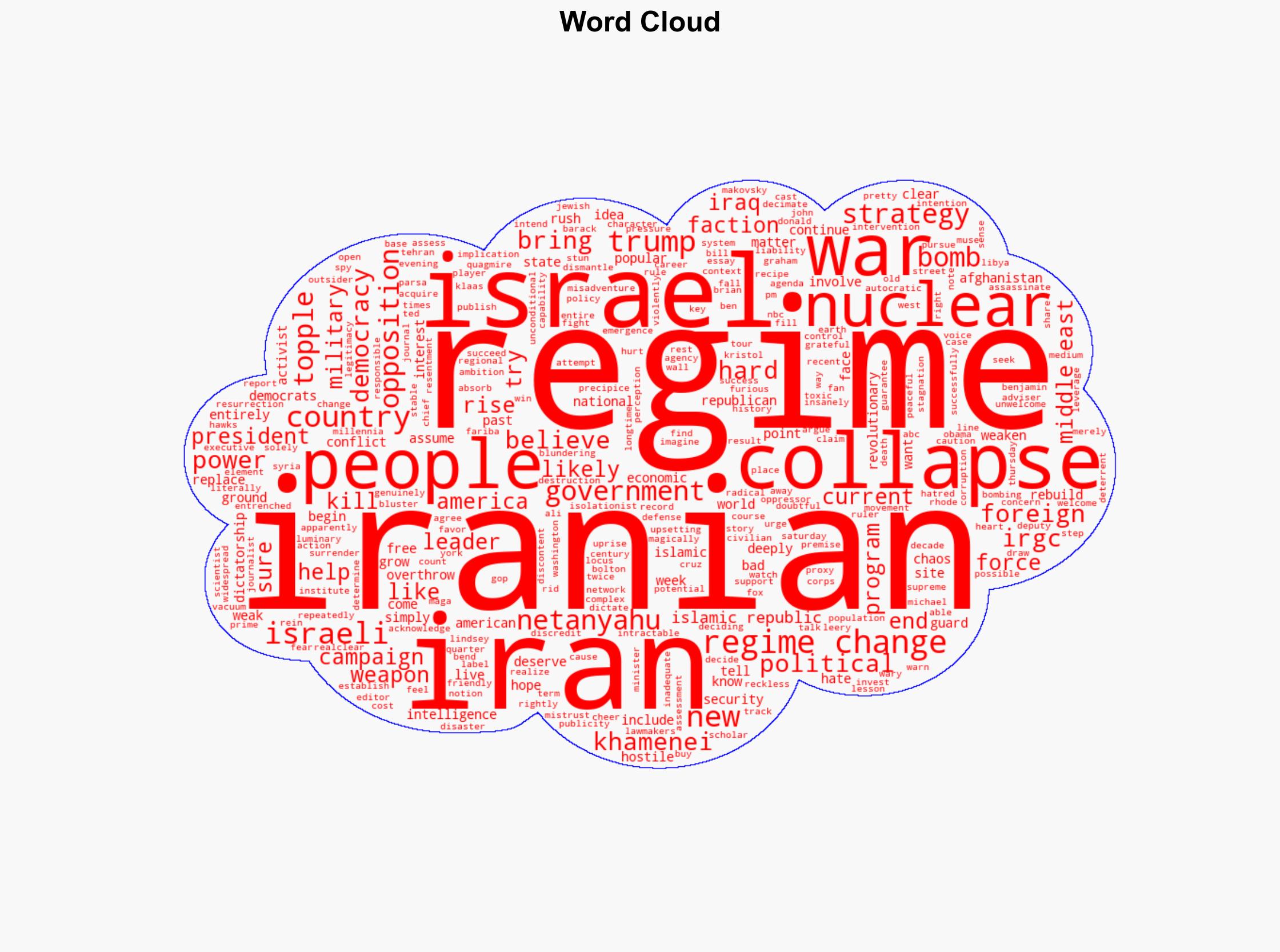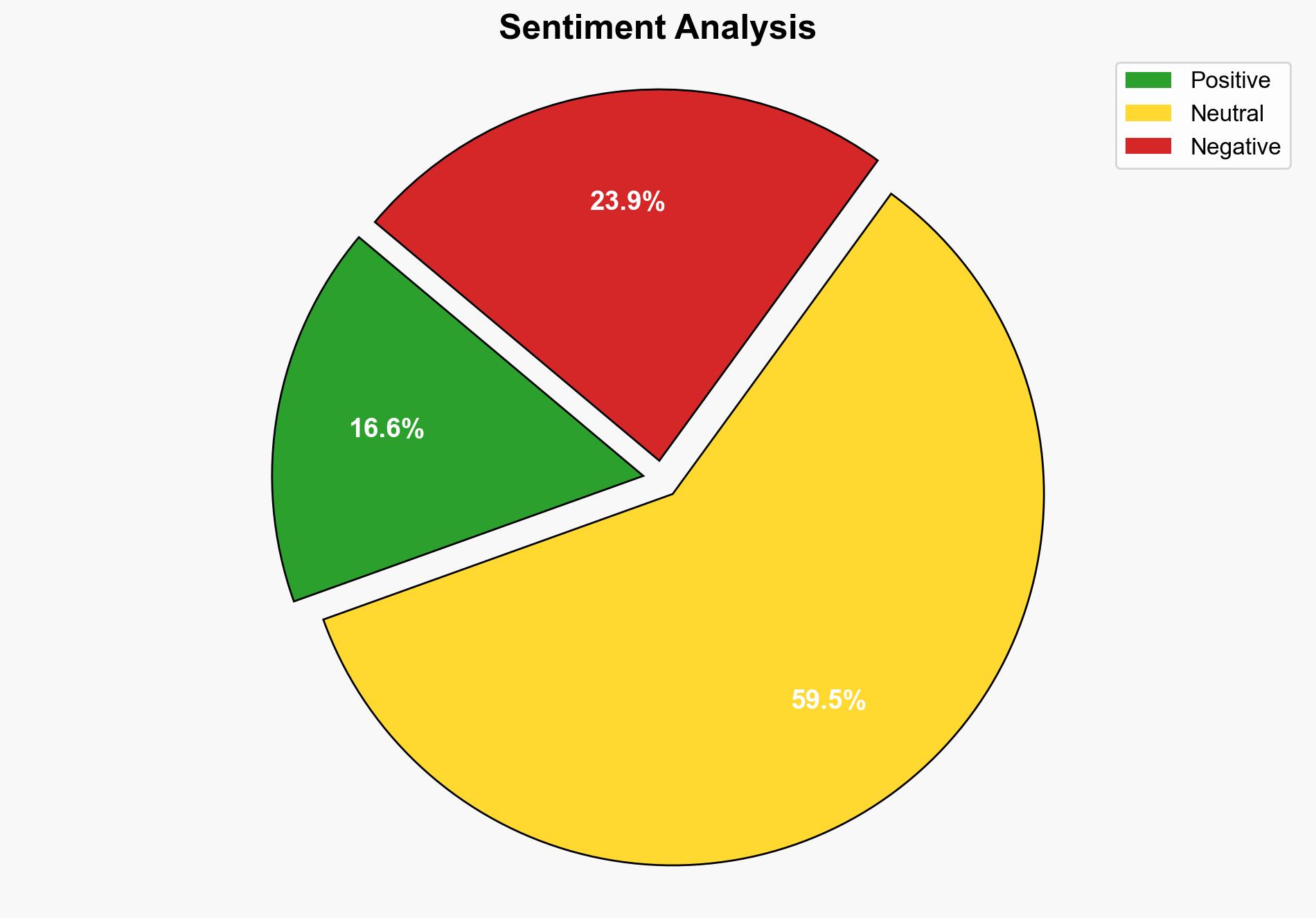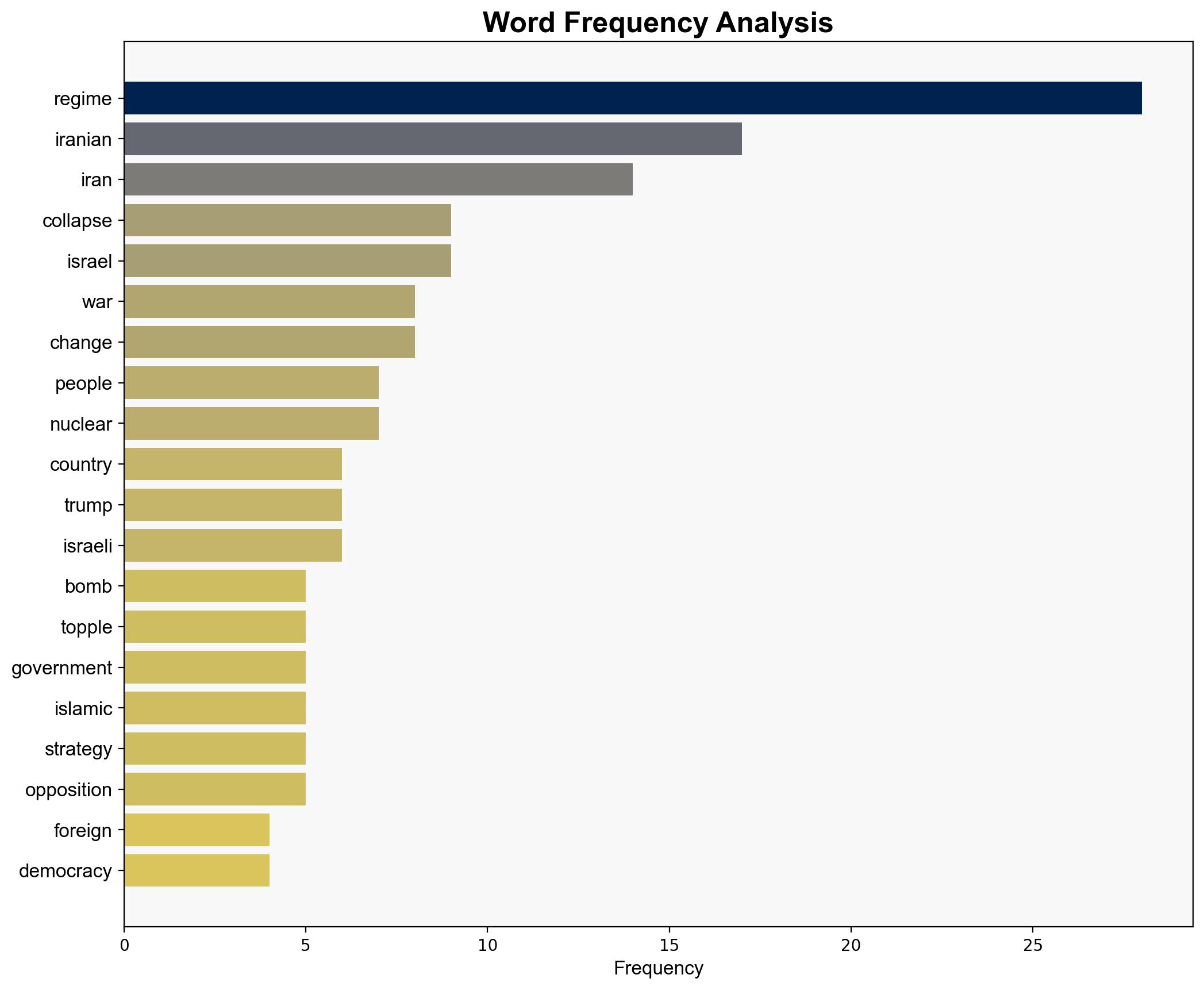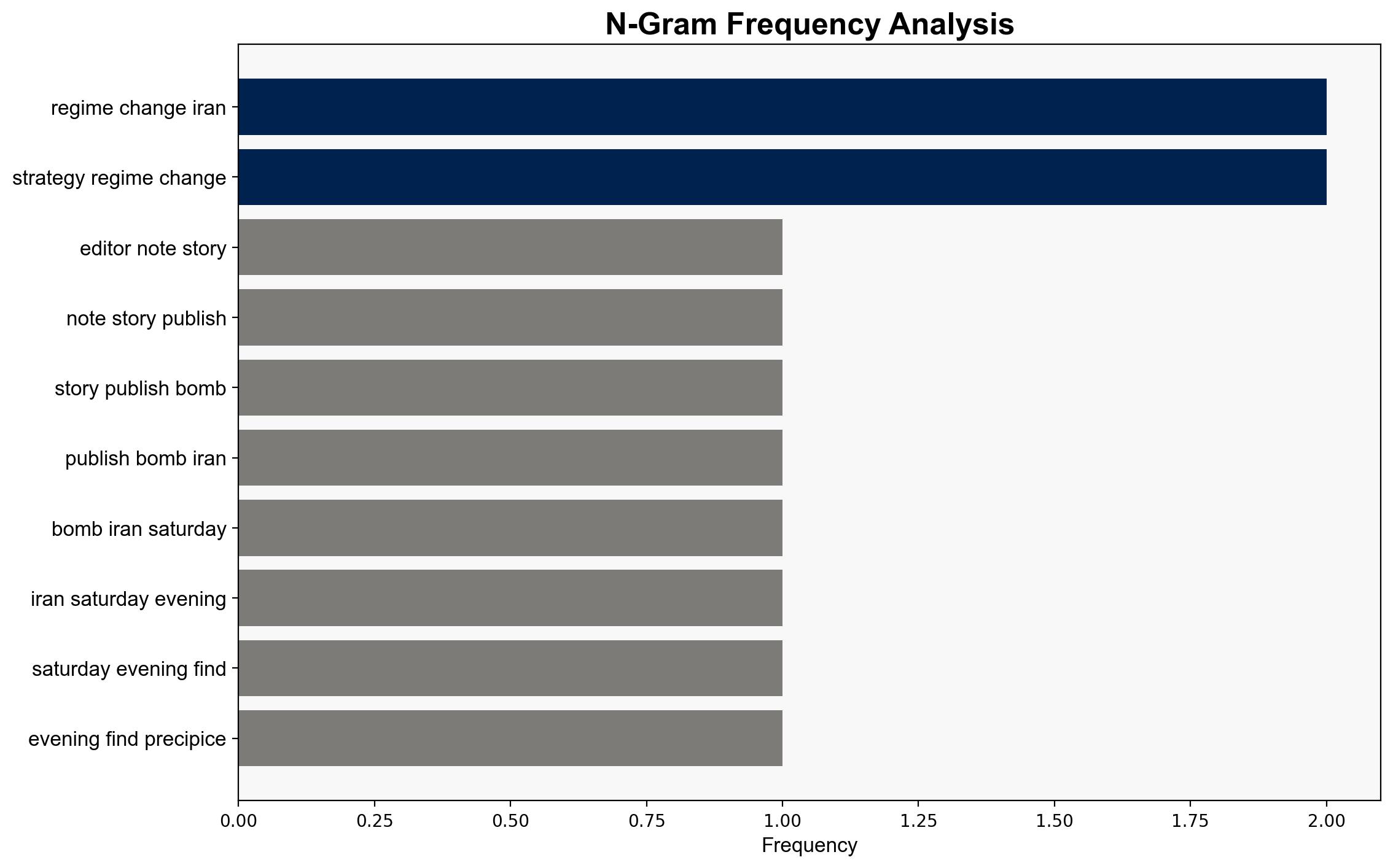Regime Change Wont Liberate Iran – New York Magazine
Published on: 2025-06-21
Intelligence Report: Regime Change Won’t Liberate Iran – New York Magazine
1. BLUF (Bottom Line Up Front)
The prospect of regime change in Iran is fraught with potential for chaos and instability, echoing past foreign policy failures in Iraq, Afghanistan, Libya, and Syria. The analysis suggests that external attempts to destabilize Iran could lead to further regional turmoil rather than the emergence of a peaceful democracy. The report recommends cautious engagement and highlights the need for a nuanced understanding of Iran’s complex political landscape.
2. Detailed Analysis
The following structured analytic techniques have been applied to ensure methodological consistency:
Causal Layered Analysis (CLA)
Surface events indicate heightened tensions with discussions of regime change. Systemic structures reveal entrenched political systems resistant to foreign intervention. Worldviews reflect skepticism about the effectiveness of such interventions, while myths perpetuate the notion of regime change as a panacea for regional issues.
Cross-Impact Simulation
Potential regime change in Iran could destabilize neighboring countries, exacerbate existing conflicts, and disrupt economic dependencies, particularly in the energy sector.
Scenario Generation
Scenarios range from successful regime change leading to democratic reform, to prolonged conflict and regional destabilization. The most likely scenario involves increased internal unrest without significant political change.
Network Influence Mapping
Key influencers include regional actors and international stakeholders with vested interests in Iran’s political future. The influence of media narratives and public opinion is also significant.
3. Implications and Strategic Risks
The primary risk involves regional destabilization, with potential spillover effects into global markets and security frameworks. Cyber threats and military escalations are also possible, given the strategic importance of Iran in the Middle East.
4. Recommendations and Outlook
- Engage in diplomatic efforts to de-escalate tensions and promote dialogue with Iranian authorities.
- Monitor regional developments closely to anticipate potential flashpoints.
- Prepare for scenario-based outcomes: Best case involves peaceful reform, worst case involves regional conflict, and the most likely case involves continued status quo with internal unrest.
5. Key Individuals and Entities
Bill Kristol, John Bolton, Lindsey Graham, Ted Cruz, Ben Rhodes, Donald Trump, Benjamin Netanyahu, Ali Khamenei, Michael Makovsky, Fariba Parsa.
6. Thematic Tags
national security threats, cybersecurity, counter-terrorism, regional focus





